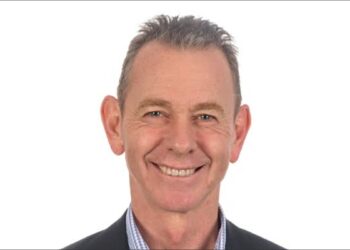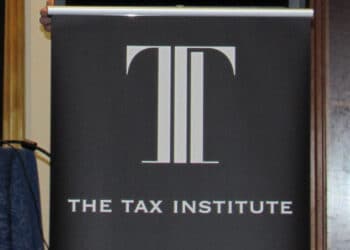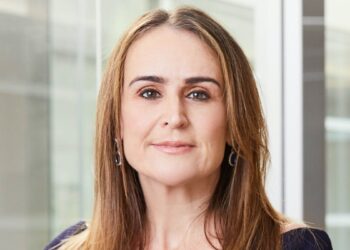Chief executive Peter Burgess told SMSF Adviser that it has been clear from the outset that the controversial $3 million super tax would result in amounts being transferred to other tax-advantaged structures.
“That raises serious questions about the government’s projected tax revenue gain,” he said.
In mainstream media outlets on Thursday morning, it was reported that wealthy retirees had started to sell off assets and restructure their investment portfolios to try and avoid the proposed Division 296 tax, while high-income earners under 40 had stopped making voluntary contributions to their super over the uncertainty of the tax on unrealised capital gains.
Yesterday, Treasurer Jim Chalmers said defined benefit schemes, such as those in place for politicians and judges, would be “appropriately represented” in the proposed changes.
“We made it clear it applies the same way that the Coalition’s changes did, and we did a lot of consultation to make sure that defined benefit was appropriately represented in the changes that we are proposing,” he said.
“Now these changes are modest. They affect half a per cent of people in the super system. Only balances above $3 million still receive concessional tax treatment, just slightly less concessional, and they help us fund our priorities, which are strengthening Medicare and building more homes and cutting income taxes and helping with the cost of living.
“These changes have been in the public domain now for more than two years. They’ve been in the parliament for a big slice of that. We’ve made it clear that these changes are relatively modest, but they’re important in the context of the budget and defined benefit schemes have been appropriately recognised as part of our effort.”
Burgess said it disappointing that the government continues “to bury its head in the sand” and is not listening to genuine concerns about the design of this tax and the crippling impact it will have not only on those superannuants directly impacted but also Australia’s economic growth.
“We also refute claims made by the Treasurer that the design of this tax was subject to extensive consultation,” he said.
“This was clearly legislation drafted on the run with no genuine engagement with industry. We will continue to urge the government to seek alternatives through an inclusive and transparent consultation process.”
Meg Heffron, director of Heffron, said she is fielding “tons of questions” over the proposed legislation.
“The tone is ‘I’m going to take my money out’,’ she said.
“While that won’t be the right choice for everyone I think the idea of being taxed on gains that haven’t been realised and not getting a refund on losses is just making people say ‘Well at least if I take my money out I know I will only pay tax on money I have’. In some cases, they are ready to put up with a little more tax overall to achieve that.”
Nicholas Ali, head of SMSF technical services for Neo Super, said it has already had its biggest funds begin to transfer assets out of super.
“Overall, clients are concerned they are going to be paying extra tax on their retirement savings, even those with less than $3 million,” Ali said.
“People are also concerned Labor won’t stop at taxing unrealised gains in super funds and this policy could spread to other asset classes, given Labor and the Greens control the Senate.”
Ali said one of the most disappointing elements of the current situation is that some younger clients are losing faith in super.
“They feel governments cannot be trusted to leave super alone and money is locked away for decades, at the mercy of other future tax grabs,” he said.
“Super is no longer seen as the retirement savings vehicle of choice, and they are better off building wealth in other asset classes that do not have preservation rules. There will be plenty of work in the short term transferring money out of super, but I fear for the industry in the longer term.”
David Busoli, principal at SMSF Alliance, said there is no need to panic as yet, despite reports in the media.
“This is totally unnecessary. Let’s look at the facts. The measure is not law, but I believe it will become so, with a commencement date of 1 July 2025, so let’s assume it is,” Busoli said.
“Super is the most tax-effective structure we have, and, for members with $3 million or less in super, it remains so. These members will not be affected at the moment and may never be,” he said.
“This did not stop my doctor’s wife from transferring her $2 million balance out of the fund – and losing her SMSF pension – because, when added to her husband’s balance ‘it would take them over the $3 million limit and expose the whole fund to an extra 15 per cent tax’.
“This is absurd. The cap is on a per-member basis, and the extra 15 per cent tax is only applicable to ‘earnings’ attributable to balances in excess of $3 million.”
Busoli said, unfortunately, it’s too late to fix that client’s situation now and stated she has been a victim of misinformation and half-truths.
“There will be individuals who will achieve a better tax outcome by reducing their super balance to $3 million, but they don’t need to do it in haste. And there are many who will be best served by making no change at all. There is plenty of time to consider what the legislation ultimately becomes before making a decision. Any panic to meet the 30 June 2025 ‘deadline’ is due to confusion regarding the significance of the definition of earnings.”
Peter Johnson, director of Advisers Digest, said there is no doubt that the proposed tax is already having a positive impact for the government with many super fund members selling down assets to withdraw funds from super.
“This means that the assets will be invested in another entity that will likely have similar tax on the earnings however the tax will only be levied on realised capital gains,” he said.
“I have had one accountant contact me with a client who has a valuable private company investment that is pre-listing and can’t be sold, but will go up in value each year. He can’t sell the investment and has no access to cash to pay any Division 296 tax other than to sell his house or refinance it.
“Similar situations will happen where valuable farms are held in SMSFs. I am sure there will be many examples once the law is enacted.”
Johnson added that in discussion with other practitioners there is overall agreement that a tax of an extra 15 per cent on larger balances is appropriate policy.
“Many would be happy with the limit being reduced to what the Greens have proposed of $2 million,” he said.
“That said, there is also overall agreement that the policy of taxing unrealised gains is very poor. It is only there to appease the industry funds that say they don’t have systems that can report. They also have systems that have recently been hacked.
“The government is forcing more than a million small businesses to adapt to payday super but won’t force a handful of superannuation funds to adapt to reporting a share of taxable income. It just doesn’t add up.”



This is just a new tax being introduced by a Labor government which typically can’t balance the books. They changed benefit tax on Superannuation to be paid upfront by Contributions and Earnings tax, because they couldn’t balance the books. Thy introduced Capital Gains Tax because they couldn’t balance the books and this will just become another “just because we can’t balance the books” tax that will be forced on all Australians in the future… just because they can’t balance the books.
Because it’s not indexed, $3,000,000 will be an “ordinary amount” to have in Super. In reality, it’s not a fortune now, but considering the earnings on funds, ever increasing contributions and the effects of inflation, everybody will suffer this tax eventually.
Yet they’re still not happy. I’m wondering how long it will take them to tax unrealised gains on Non-Superannuation investments, because that’s only a stone’s throw away.